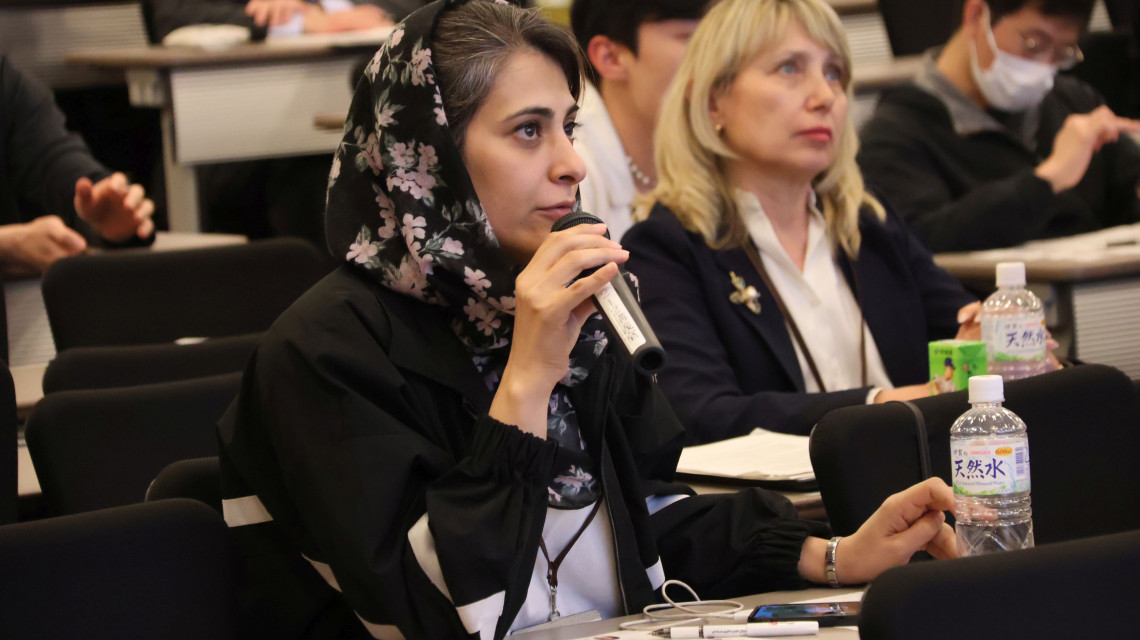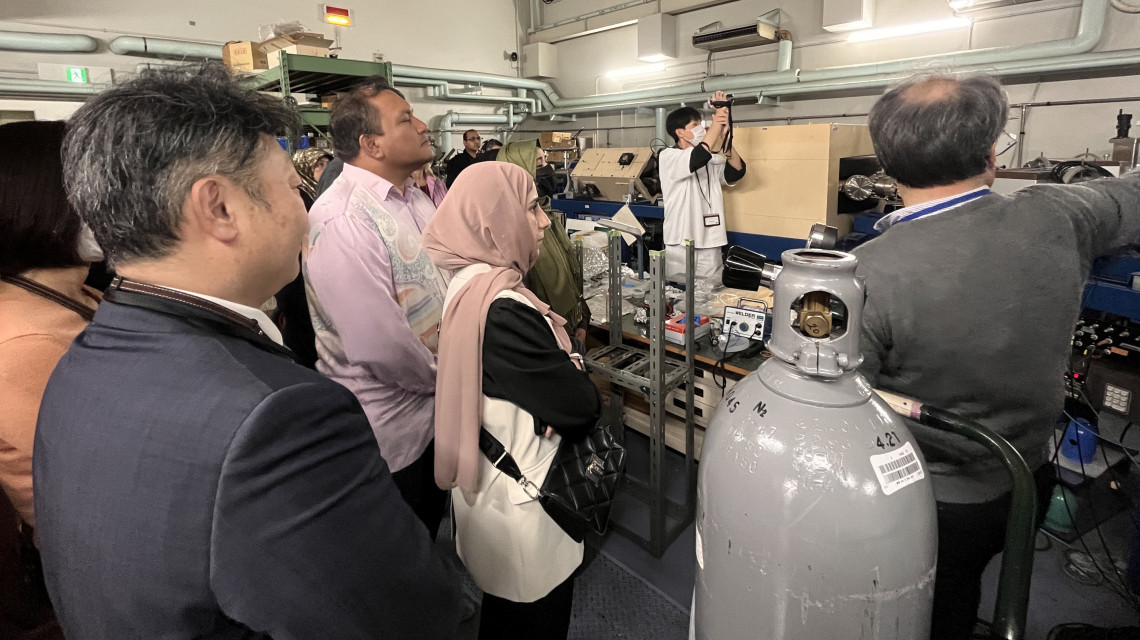
The first phase of the Executive Programme for Educators was implemented online through distance-learning and focussed on the fundamentals of both teaching and nuclear science, with the aim of synthesizing those lessons into concrete skills during the second phase, which focused on hands-on capacity building.?(Photo: T. Iimoto/UTokyo)
Programme structure
The EPE consists of two phases. The first, implemented online ?with the Open University of Malaysia and the ?Asian Network for Education in Nuclear Technology (ANENT), focuses on capacity building across three modules: (1) Approaches to teaching child and adult learners; (2) the role of nuclear science and technology in development; and (3) the international legal and development context surrounding nuclear applications. Twenty-five participants passed phase 1 in November 2024 .
In the second phase, graduates are enrolled in one of four INSTA schools, each with a technical focus—nuclear engineering and nuclear safety, radiation medicine, advance radiation protection or research reactors application. The schools prepare the participating graduates to teach the subject effectively in their home countries.
Training in Japan
On the launch of the second phase of the programme, in March 2025, EPE trainees joined an INSTA school in Tokyo, Japan, where they received instruction in advanced radiation protection, with emphasis on risk communication and management related to naturally-occurring radioactive material. ?
“The target participants of INSTA are not limited to professionals working in nuclear science and technology ,” said Professor Takeshi Iimoto, Executive Secretary of INSTA and organizer of the INSTA School in Japan. “We are nurturing educators across disciplines, particularly in areas like risk communication, which is crucial in the post-Fukushima era.”
The module was organized by the IAEA and hosted by the Japan Volunteer’s Expert Team through its Science and Technology Information Forum, with support from the University of Tokyo. The programme was delivered by international experts from INSTA network institutions in six countries—Bangladesh, Japan, Malaysia, Oman, the Philippines, Syrian Arab Republic and Thailand and fully funded by the Government of Japan.
“The INSTA-EPE and INSTA school provided unforgettable opportunities to engage with experts and fellow educators across the region,” said Khairul Anuar bin Abdullah from Jasin District Health Office, Ministry of Health, Malaysia. “The exposure to Japan’s best practices and interdisciplinary dialogue inspired me to strengthen regional collaboration in radiation education.”
A distinctive feature of the INSTA school hosted by Japan was its real-world exposure, which was made possible through site visits. Participants joined tours organized by the Japan Chemical Analysis Centre (JCAC), the Tokyo Metropolitan Police Department and the Tokyo Fire Department to learn about emergency preparedness and crisis management.
At JCAC, participants observed advanced equipment such as silicon semiconductor detectors, liquid scintillation counters and high-purity germanium detectors, which sparked ideas on how similar tools could be used or simulated in their home institutions.







